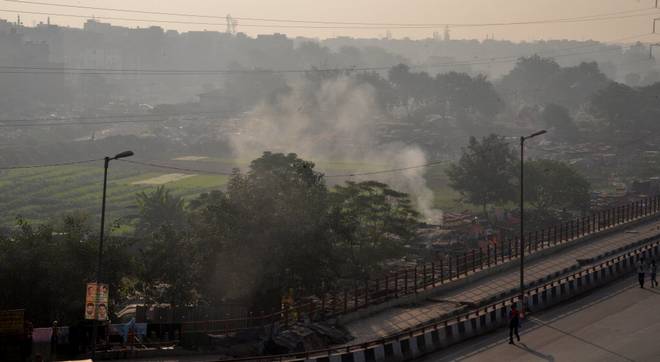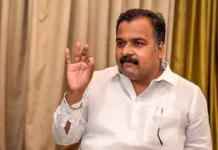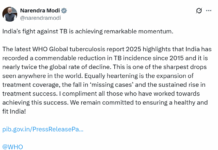NEW DELHI: The National Green Tribunal cracked the whip on the Rajasthan government by slapping a fine of Rs 20 crore for not performing its function properly to control pollution in the Bandi River by local textile industries.
A bench headed by Justice Raghuvendra S Rathore directed the Rajasthan chief secretary to deposit the money as an interim amount within one month towards environment compensation to the Central Pollution Control Board, which may be recovered from the polluters.
The bench directed the agriculture secretary and the Rajasthan government to get an assessment done on loss of agriculture to the farmers due to the damage caused to agriculture land by use of contaminated water of the Bandi river as well as to the wells in the nearby area and submit a report within one month, suggesting compensation to the farmers.
“We impose environment compensation of Rs 1 crore on CETP operators for discharging effluents into the Bandi River and not setting up a system for reuse of treated water for supplying to the industries to be deposited with the CPCB, within one month. We direct collector, Pali to review the status of compliance of directions of the Tribunal weekly and the same be reviewed by the divisional commissioner, (Jodhpur) in one month,” the bench said.
The green panel gave its direction while adjudicating a plea by Kisan Paryavaran Sangharsh Samiti, which has alleged that textile units have caused pollution in the Bandi River.
A study of surface and groundwater in Pali, conducted by the Centre for Science and Environment in 2008, had found almost 80 per cent of the sample water unfit for drinking.
The samples showed high alkaline and chemical oxygen demand levels, indicating dangerous levels of organic pollutants. The quantity of total dissolved solids was four times higher than the standard. The case was transferred to the NGT from the Jodhpur High Court in 2012.
The green panel also held that the Rajasthan State Industrial Development and Investment Corporation (RIICO) is not maintaining the industrial area and as it was observed that the drains meant for carrying storm water are either choked or not cleaned regularly.
It also noted that there has been a practice of burning waste, which is a cause of air pollution in the area, and the state pollution control board has not properly regulated the consent mechanism.
The state pollution control board has also failed in ensuring compliance of installed CETPs and particularly that no waste water is to be discharged in the Bandi River, it said.
“No report has been sought or action taken by the state government on health issues of the villagers, scarcity of drinking water supply and damages to the agriculture because of use of contaminated water,” the NGT said.
It also directed the health secretary to file a report on status of health of villagers in the area due to the use of contaminated water within one month and also report on health check-up camps organized.
“The secretary for water resources of the state government and central/state ground water agencies will file, through its secretary, report on the status of ground water reserves and quality in the catchment of Bandi.
“The report should clearly highlight status of ground water contamination in the context of industrial and sewage discharge in the open. Report should also be filed in the context of providing potable water to the affected villagers, including setting up of water treatment plants through polluters,” it said.
It directed the state Transport Department to keep vigil at different check-posts within the districts of Pali to control and prohibit discharge of unauthorized effluents through tankers into the Bandi River or at any other locations.
This action should also include prohibiting entry of any unauthorized tankers from the neighboring districts, it said.
“We direct the Central Ground Water Board (CGWB) to file a status of ground water scenario in Pali district indicating; (a) pendency of applications for grant of permissions received from industries (b) groundwater level and its quality in Pali district. We direct the Rajasthan Pollution Control Board to grant consents under the Water Act to the industries and disseminate the status on its website. No industries should be allowed to operate without having valid consent,” the NGT said.
The tribunal asked the state pollution control board to ensure that no industrial and sewage effluent is discharged into the river (even treated) and instead, it should be utilized by the industries. The Board should take coercive action against the defaulting industries, including imposing environment compensation as well as launching prosecution, the green panel said. PTI







